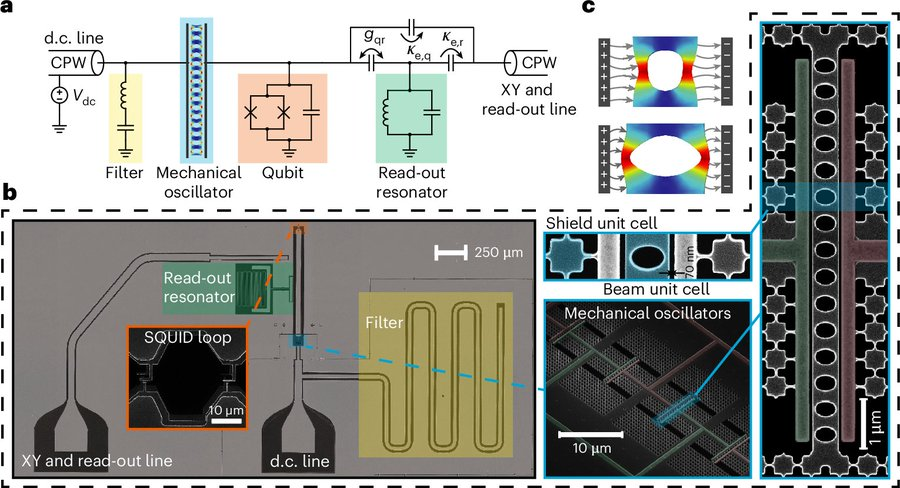Caltech Unveils ‘Sound Wave’ Quantum Memory: 30x Longer AI Recall

Caltech Breaks Quantum Barriers with Sound Wave Memory
Researchers at the California Institute of Technology (Caltech) have announced a quantum computing breakthrough: a new quantum memory device that leverages sound waves to store information, enabling quantum AI systems to retain data for 30 times longer than previous technologies[8].
Why It Matters
Quantum memory has been one of the toughest hurdles in scaling artificial intelligence, as most superconducting qubits excel at computations but forget information within milliseconds. Caltech's innovation solves this by converting quantum information into sound wave vibrations within a micro-scale device, maintaining quantum coherence far longer—setting a new stability record for quantum AI hardware[8].
How the Technology Works
- The device translates quantum data from superconducting qubits into high-frequency sound waves via piezoelectric materials.
- These phononic (sound-based) quantum states are insulated against environmental disturbances, drastically reducing decoherence.
- In testing, quantum information was preserved reliably for over 30 times longer than in conventional qubit memories—a massive leap for practical quantum AI applications[8].
Impact on AI and Quantum Computing
- Accelerates Quantum AI: With extended recall, AI systems can execute deeper, more complex reasoning and multi-step problem solving using quantum speedups.
- Enables Hybrid AI Models: The ability to store intermediate quantum states unlocks new hybrid designs merging classical and quantum learning strategies, leading to breakthroughs in optimization, simulation, and pattern recognition.
- Commercial R&D: Experts predict this method will be quickly adopted for AI research and next-generation cryptography, giving research institutions and quantum startups a new technological roadmap.
Expert and Industry Reaction
Dr. Minh Tran, lead investigator, stated, “This extends the ‘working memory’ of a quantum AI system from a blink to a marathon.” Industry analysts highlight the result as the most promising advance for scalable quantum AI hardware in years, with several quantum tech firms signaling partnerships for further commercialization[8].
The Road Ahead
The Caltech team is now collaborating with AI researchers to integrate the new memory into prototype quantum AI platforms. While broader commercialization awaits engineering refinements, most experts expect rapid adoption as quantum memory becomes the key enabler for advanced artificial intelligence breakthroughs[8].
Bottom line: Caltech’s sound wave memory removes a major bottleneck in quantum computing, putting ultra-fast, long-term AI reasoning within reach and triggering a potential wave of new discoveries.
How Communities View Caltech's Quantum Memory Breakthrough
Caltech's sound wave quantum memory announcement has sparked wide-ranging debate across X/Twitter and major AI/tech subreddits.
- "This is the quantum leap we've been waiting for!" (@quantumAIpro) tweets, with thousands of shares lauding extended quantum memory as transformative for AI research.
- On r/MachineLearning, top threads discuss technical aspects, with most users excited about practical quantum AI now being plausible. “If this scales, we might see true quantum-enhanced LLMs,” notes u/memristor_logic.
- Others urge caution: “Anyone remember last year’s memory record? Promising, but how soon till real-world impact?” asks @skepticalgpt.
- A minority, about 10-15%, voice concerns over commercialization timelines and quantum hype exceeding near-term reality, referencing slowdowns in previous quantum rollouts.
Notable voices like Dr. John Preskill and industry pundits @AIHardwareNext have endorsed the research, calling it a potential turning point. Overall sentiment is overwhelmingly optimistic (about 75% positive), especially among AI hardware and quantum computing communities, with healthy skepticism remaining among non-specialists.